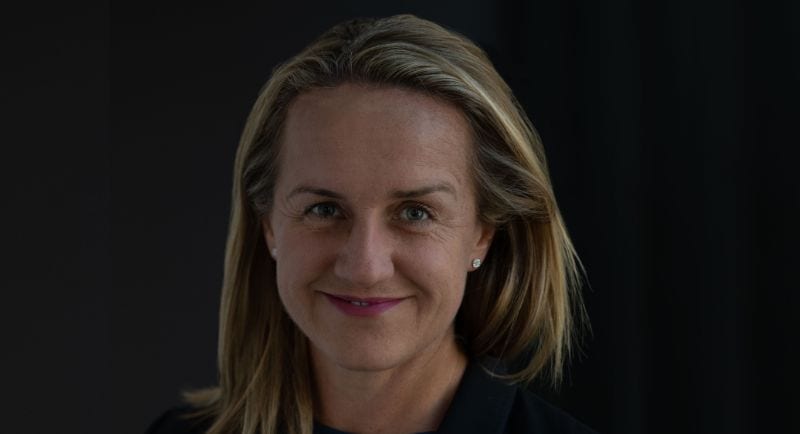MAGNA, the investment and intelligence arm of IPG Mediabrands, has released a study conducted in partnership with Teads, the global media platform, and Project Drawdown, a nonprofit focused on climate solutions, entitled Sustainability Speaks: Breaking the Barrier of Climate Communication via the MAGNA Media Trials program.
The MAGNA report uncovers data about consumer perceptions of the sustainability endeavours of brands. MAGNA Media Trials and Teads sought to better understand the consumer perspective on sustainability, especially as it relates to barriers that prevent a more sustainable lifestyle.
The results of the study uncover how brands can help bridge these barriers and reveals consumer expectations when it comes to taking action on sustainability.
The study’s key findings include:
• In Australia, 78% of people reported now seeing Sustainability as important, however 82% of people experiencing barriers to living more sustainably, with most citing expense or lack of access to the right resources as the paramount barriers to a sustainable lifestyle.
• Among generations, Gen Z and Millennials were the most likely to experience barriers (91% vs. 75%, respectively). However, prior research has pointed to the cost efficiency of sustainable behaviours, suggesting a disconnect between perception vs. reality for consumers.
• Critically, 75% of Australians want to see more companies take a stance on sustainability, Australians increasingly looking to businesses to take a lead on environmental issues, and to demonstrate sustainability credentials in the products and services they provide.
• Companies across the board are being asked to take meaningful sustainable action, and Australians are looking to categories from financial services to oil and gas manufacturers to inspire and motivate action in sustainability.
• Being mindful that a quarter of Australians surveyed have perceived specific examples of greenwashing, highlighting need for brand authenticity in their sustainability communications
MAGNA surveyed 9,112 people across Australia, the United States and the United Kingdom and held five focus groups in the U.S. In addition to determining why people and brands are not doing more, Sustainability Speaks: Breaking the Barrier of Climate Communication explores how advertisers can more effectively communicate their sustainability goals while also supporting brand growth.
Martin Bryan, Global chief sustainability officer at IPG Mediabrands, said: “As governments, NGOs, businesses and individuals grapple with climate action, we can take heart that the majority of people surveyed – across multiple markets and demographics – agree that living more sustainably aligns with their personal values.”
“Among the key barriers to climate action we uncovered in our research is that people aren’t sure their actions can make a difference – and they fear that a sustainable lifestyle is cost-prohibitive and inconvenient.”
Ros Allison, sustainability lead at Mediabrands Australia, said: “This research shows that Australians have aligned fast with global counterparts, in both recognising the climate emergency and in looking to business to lead in systems-level change for a sustainable economy. Marketing and media now have a mandate to create new value in a regenerative economy, and help brands in better service of people and planet.”
Jonathan Foley, Ph.D., executive director of Project Drawdown, said: “The climate crisis is, in part, a communication crisis. We already have the solutions we need to turn things around, but we are still paralyzed by misinformation, fear, and the lack of will to act. We need a clear and compelling vision to move forward — a vision of a better future, where we come together to stop climate change, and build a better world for all. That could change the world.”
Additional key findings include that consumers are looking to brands to be part of the conversation; 77% of respondents said they wanted brands to take a stance on sustainability. Furthermore, 75% somewhat or strongly agreed that if brands took a stance on sustainability, it would have a tremendous impact on the environment, and 35% would be motivated to act, if they saw brands had, too.
A brand that offers tangible, relevant data in advertising, like a statistic on how much water was saved in manufacturing, scores better than ambiguous messaging. Defining sustainability itself, a broad term that can vary by product category, makes a difference in helping consumers align around a company’s actions.
The study also ranked which channels consumers favour more when receiving sustainability messaging. Advertising, at 66%, was the optimal channel, followed by social media accounts (62%), newsletters (57%) and influencers and other brand representatives (52%).
Neala Brown, senior vice president, Strategy & Insights, Teads, said: “Sustainability practices are good for business, with innovation, transparency, and information key for brands to strengthen their customer relationships long-term.”
“While brands should ease customer hesitations toward adopting a sustainable lifestyle and given advertising as an optimal channel for that messaging, we are simultaneously working with our brand partners to reduce their own digital carbon footprint with supply chain and media optimization via direct publisher relationships.”
Survey respondents said the other climate actions brands can take are to:
• Educate: Help people waste less and show them how carbon-friendly the brand’s product or service is
• Innovate: Develop new formulas, sourcing sustainable materials and packaging and donating to causes
• Collaborate: Join forces with customers around causes and work with climate experts and their campaign
• Propagate: Take part in pushing policies for eco-activism while establishing credibility through third-party verification and certification
–
Top image: Ros Allison
